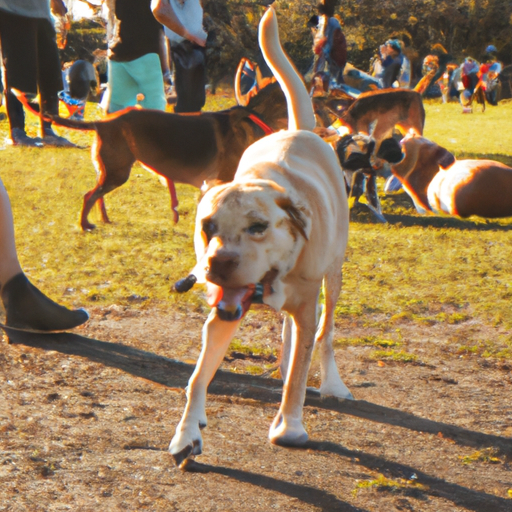Introduction
First and foremost, it’s important to understand that socializing your dog with other dogs is more than just a casual playdate. It’s an essential part of their growth and development.
Much like humans, dogs need to learn how to interact with their peers. This not only improves their general behavior but also their mental health. So, let’s dive into the practical steps on how to socialize your dog with other dogs.
Step 1: Start Early
The best time to begin socializing your dog is during their “puppyhood”. Puppies are much more receptive to new experiences and situations.
- Puppy classes: Puppy classes are a great way to expose your dog to different breeds and sizes in a controlled environment.
- Planned playdates: Organize playdates with friends or family who have well-behaved dogs.
- Walks in the park: Regular walks in dog-friendly parks can provide organic opportunities for your dog to meet and interact with other dogs.
Step 2: Gradual Exposure
Sudden or forced socialization can lead to fear or anxiety. Therefore, it’s crucial to introduce your dog to new dogs gradually.
- Start with familiar dogs: Begin the socialization process with dogs your pet is already familiar with.
- Controlled environment: Make sure the first few interactions take place in a neutral and controlled environment.
- Short durations: Keep the initial interactions short to avoid overwhelming your dog.
Step 3: Monitor and Guide Behavior
As your dog begins to interact with other dogs, it’s important to monitor their behavior and correct any inappropriate actions.
| Behavior | Action |
|---|---|
| Aggression | Correct immediately and give a time-out |
| Fear | Comfort and reassure your dog |
| Over-excitement | Calm your dog down before allowing further interaction |
Step 4: Consistency is Key
Consistent exposure is key to successful dog socialization. Regular playdates, interactions, and positive reinforcement will help your dog become more comfortable with other dogs over time.
Step 5: Know When to Seek Help
If your dog continues to struggle with socialization, it may be time to seek help from a professional dog trainer or behaviorist.
Frequently Asked Questions
Q: Can an older dog be socialized?
A: Yes, but it may take longer and require more patience.
Q: What if my dog is aggressive towards other dogs?
A: This could be due to fear or a lack of socialization. Consult with a professional trainer for a tailored approach.
Q: How can I socialize my dog if I don’t know any other dog owners?
A: Consider joining local dog clubs or online communities where you can organize playdates.
Remember, socializing your dog is not just about them making canine friends. It’s about equipping them with the skills to navigate the world confidently and calmly. You’re not just a caregiver, but a guide in their life journey.



